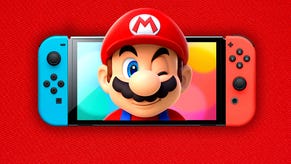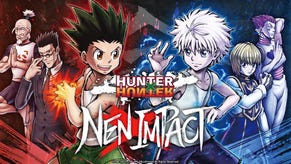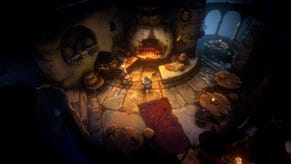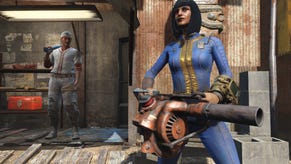The making of Assassin’s Creed 4: origins, reparations & uncharted waters
Assassin's Creed 4: Black Flag marks - for many - a significant leap in quality over its predecessor. Now that it's out, VG247's Dave Cook has managed to dig deep into the game's development, with insight from Ubisoft's creative team.
”We asked ourselves 'What if a talented and shrewd pirate – a criminal who already had some of what he wanted in life – were to come into contact with the Assassins?' Would he care? Would he shun or spurn them? Would they kill him? Would he find them silly?”
It's no secret that sequels are tricky, and in this age of blockbuster franchises they are surely getting trickier. If a new triple-a IP gains critical acclaim and makes a solid return on investment you can be assured that somewhere, at some time, the possibility of a sequel has been discussed. It's that old mentality of having a good thing and rolling with it. As we've seen with the saturated Tony Hawk and Guitar Hero franchises, there comes a point where the sequels simply have to stop.
The original Assassin's Creed launched in 2007 to mixed critical response, but its sequel knocked it out of the park and significantly improved the template. While the series is still going strong, staying relevant for all those years can't have been easy for Ubisoft and its cluster of internal studios. Assassin's Creed 3 proved to be a sore point for several critics and gamers alike, its open world frontier overshadowed by Rockstar's Red Dead Redemption. I also wrote a blog explaining why I felt Assassin's Creed 3 was a major let-down compared to previous instalments.
I truly feel Ubisoft pulled an 'Assassin's Creed 2' when it released Black Flag, however. Once again, the company showed that it was happy to listen to its critical response and make amends where necessary, ultimately releasing a superior experience that pushed the template further. But why did the series jump from the third game to Black Flag when Assassin's Creed 2 formed a trilogy? What happened between both games to create such a leap in quality? I went straight to Ubisoft for answers.
Assassin's Creed 4: Black Flag creative director Jean Guesdon recalled the origins of the project, and revealed that the concept first started in 2011. "I’d been asked to have a first think about an AC pirate game using the amazing naval tech that was, back in the day, in development in Ubisoft Singapore for Assassin's Creed 3. As usual we made our historical research and realized that the perfect setting for us would be the beginning of the 18th century in the Caribbean.
"That being said we decided to make our main protagonist the father of Haytham and grandfather of Connor in order to create that link between Assassin's Creed 3 and 4. We knew from the beginning that we would deliver for six consoles and we made our plan accordingly. In the end we can say that we’re very proud because the end result is in fact quite close - if not superior on some aspects - to our initial thoughts."
It's quite refreshing that the team was asked for its thoughts on where to take Assassin's Creed after colonial America, but for Guesdon, the decision to create a game around the Golden Age of Piracy was helped along by the third game's naval combat; arguably its finest aspect. He added that the studio saw an opportunity to create the world's first triple-a pirate game based on that sea-faring concept, and with the base tech already in-house the decision was helped along.
As something of a tease, Guesdon added, "Feudal Japan remains - like numerous other time periods and locations - a possible future setting for the franchise because thanks to the Animus. The entire human history is our playground." To fully realise its free-roaming Caribbean environment, Ubisoft had to not only research the period for accuracy, but hone its own tech. The grand scale of Assassin's Creed 3's landscape proved to be a solid starting point, but in Black Flag the team was going bigger and bolder.
”Two of the six Assassins Creed games have spanned three decades, which is great for showing a certain kind of character development. But we weren’t terribly interested in talking about Edward’s boyhood. It would have felt too repetitive.”
Guesdon explained that to achieve such a grand play-space without constant loading screens or interruption, Ubisoft's technical directors had to optimise its assets - from characters and props, to the constantly shifting ocean itself - ensuring that ships built from hundreds of separate parts didn't cause the world to stutter, and develop a two-tier loading system that streamed both the dry land settings and vast draw distances out at sea. In the end Black Flag's 16km by 16km map is as dynamic and vibrant as they come.
Fast travel is always an option in Assassin's Creed games, but in Black Flag there's a thrill that comes with lazily steering the Jackdaw against calmly lapping waves, seeing a dolphin leap playfully our of the surf, while Spanish vessels bob on the distant tide. That such a vast space is rarely boring comes as something of a triumph in itself, but once naval battles kick off in the middle of a violent storm, you really do appreciate how that sense of calm can be dynamically elevated to chaos at the drop of a hat. It is, in short, a real technical achievement.
It wasn't only the technical aspects of Assassin's Creed 4: Black Flag that impressed critics. Many commentators praised Ubisoft's step back from the series' mythical elements; such as the first-civilization and the deep secrets of the Animus itself. Lead writer Darby McDevitt told me that the team's story concept came from the elevator pitch, 'what would drive a relatively normal person to accept the Creed?’ In this case, you played as a new employee at Abstergo Entertainment, a multimedia company that creates products based on historical research.
It's a strange setting that regularly breaks the fourth wall; recognising Black Flag and its predecessor Assassin's Creed 3: Liberation as actual game products. Ubisoft itself is name-dropped as a game development company, and there's even some Watch Dogs easter eggs in there too if you look hard enough. It's very strange, but bears a mystery that's more endearing than the 'First Civilization' plot arc of previous.
McDevitt continued, "In previous games, our heroes have joined the Assassins without much deliberation. That is to say, its tenets were already naturally aligned with their personal goals. But since they were not natural fighters to begin with, it was incumbent upon the Assassins to train them up to a certain level. Our concerns were different. In Assassin's Creed 4 we wanted to tackle the Creed from a new perspective.
"We asked ourselves 'What if a talented and shrewd pirate – a criminal who already had some of what he wanted in life – were to come into contact with the Assassins?' Would he care? Would he shun or spurn them? Would they kill him? Would he find them silly? We wanted to find out. Edward is a pirate who yearns for freedom much like the Assassins do, but loathes the sense of responsibility that a truly functional freedom requires. Seen this way, we realized he should be in constant conflict with the very idea of the Creed, even while using some of its methods. This became the whole thrust of our story. At what point would Edward realize his brand of freedom is too chaotic to function for very long."
This new focus saw McDevitt and his team scrapping those 'coming of age' moments seen in previous games. Players would step into Kenway's sand-filled boots as a fully-capable fighter, without the need for coddling tutorials or long origin story. What you got instead was a quick route to the action that opens with a mad chase through a dense jungle. Most of us already know how the game's mechanics worked anyway, so this was a smart move on Ubisoft's part.
”We’re always trying to improve our own game, incorporating good ideas if we think they make sense in the game. For example we listened as much if not more to comments about Far Cry 3 than comments about Assassin’s Creed 3.”
"In our games," McDevitt continued, "the Assassin’s Creed is an important philosophy about the nature of free will, not a murderer’s instruction manual. So we never felt it was a problem to assume Edward knew how to fight and climb. That’s just what sailors do. He does receive some Assassin training later, however, about the more arcane elements of our fiction. The Templars inadvertently teach him about hidden blades in Havana, and his friend James Kidd teases out his innate Eagle vision. So in that sense, he does have things to learn over the course of the game.
"Also, as a writer I felt it was time to change the pace of the narrative a little bit. Two of the six Assassins Creed games have spanned three decades, which is great for showing a certain kind of character development. But we weren’t terribly interested in talking about Edward’s boyhood. It would have felt too repetitive."
Returning to the modern day Abstergo Entertainment sections, Guesdon added, "One thing that was important to me with the end of Assassin's Creed 3 was that it was the time where our real world was merging with the fictitious Assassin's Creed world which [had been] set in 2012 since Assassin's Creed 1. We had to acknowledge that somehow, and saying bye to Desmond to allow people to be themselves in our universe is something that was at the core of the pitch of Black Flag. The present day sections of Black Flag are the perfect vehicle for fan service; giving more information about what fans may know, and for universe exposition, exposing to newcomers the incredible content that’s already been developed."
In the end, Assassin's Creed 4: Black Flag takes significant steps towards rectifying problems from across the series. It succeeded in the majority, but what of the rumours that suggest Ubisoft ditched Connor and his North American setting as a way of making amends? Guesdon revealed, "Every game, every project has its own history, its own challenges and its own reception. We were already in conception and pre-production when Assassin's Creed 3 entered full speed production. Our main key decisions were already made when the first reviews came in. For sure we read them and identified some points that we wanted to make sure to address but in no way was Black Flag decided or majorly influenced after or by Assassin's Creed 3’s reception."
"During the development of Black Flag a lot of things happened," he added, "a lot of other games went out that we looked at. We’re always listening to players, even players of our competitors. We’re always trying to improve our own game, incorporating good ideas if we think they make sense in the game. For example we listened as much if not more to comments about Far Cry 3 than comments about Assassin's Creed 3."
It's true that people learn by doing, just as game developers further their own creative understanding and ability by putting out concepts and seeing what works. Few have the luxury of doing so in the expensive triple-a market, but while Ubisoft was already planning on making Black Flag before Assassin's Creed 3 shipped, it's clear that its nature was in some way informed by that previous experience.
As I said in my Assassin's Creed 4: Black Flag write-up last year, the game shows that listening to your critics works. Big game studios may appear to be stuck in their ways or unwilling to listen, but Ubisoft Montreal has become quite open on how it does business in recent years. The same is true of the Watch Dogs delay, and I get the feeling that Assassin's Creed 5 won't see the same dip in quality delivered by the third game. I for on, am excited to see what they come up with.





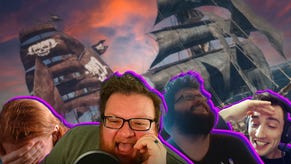
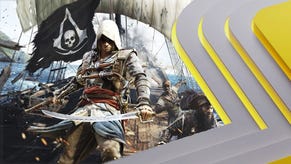
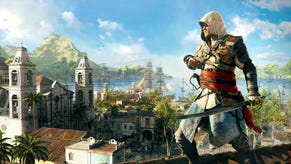
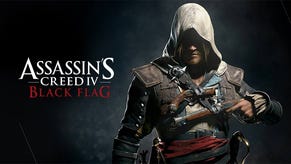
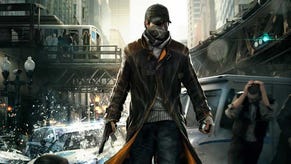
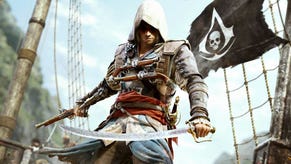
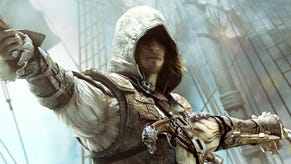
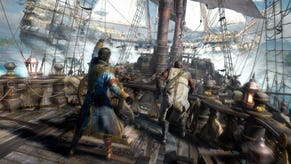
.png?width=291&height=164&fit=crop&quality=80&format=jpg&auto=webp)

